If you're at all plugged into the literary discourse online, you've probably heard something about the controversy surrounding Jeanine Cummins' immensely successful and Oprah-endorsed immigration novel American Dirt. The book tells the story of an upper middle class Mexican woman who flees a drug cartel boss with a vendetta, embarking on an action-packed odyssey to cross the border into the U.S.
American Dirt has been very popular with our own subscribers, and we're glad that the discussion we hosted gave people the opportunity to share their love of the book. However, we're concerned about certain misunderstandings that have spread regarding the controversy. The greatest of these may be that critics of the book are claiming that a white woman should simply not be allowed to tell this kind of story. The truth is, few people are saying this. The larger problem has to do with a lack of diversity in the American publishing industry and misplaced priorities in terms of whose story gets told and who is regarded as a voice worth listening to. Would American Dirt have been such a smash hit if the author was a Mexican woman herself? Maybe, maybe not. (Though it is unlikely this exact book would have been written by a Mexican author, due to its factual inaccuracies.) Would a Mexican author have had a harder time selling a similar book? Almost certainly. Would the publisher have put the full weight of its publicity department behind American Dirt if the author was a Mexican woman? Unlikely.
It may seem that problems in publishing should be separated from criticism of the book itself. However, the above summary is no replacement for the variety of legitimate and nuanced opinions on the situation from the many authors, readers and critics who have a firsthand understanding of how Latinx people are affected. Furthermore, when it comes to any subjects that directly concern Latinx people in the U.S., subjects American Dirt is invariably tied to, it simply makes sense to prioritize Latinx voices. To that end, here are six books by Latinx authors that deal with immigration and the U.S.-Mexico border.
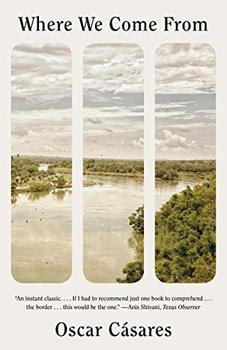 Where We Come From: A novel
Where We Come From: A novel
May 2019. 272 pages. Published by Vintage
In this exceptional novel, the Mexican-American protagonist, 12-year-old Orly, is sent to live with his Aunt Nina in Brownsville, Texas after his mother's death. He learns upon arrival that Nina's house is a way station for coyotes after a child, Daniel, appears late one night, having just escaped immigration authorities. With a third person perspective, Cásares views this scenario, and life in Brownsville, through the eyes of these three characters, plus others they encounter, to offer a nuanced view of immigration and the toll restrictive policies take on individual lives. But the novel is about much more than that, encompassing themes of secrets, identity, family history and empathy. Oscar Cásares is from Brownsville originally, and his ancestors are from San Luis Potosí.
More
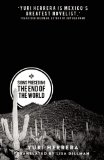 Signs Preceding the End of the World
Signs Preceding the End of the World
March 2015. 128 pages. Published by And Other Stories
This isn't a straightforward novel about border crossing, but a resonant, dreamlike tale. Clocking in at just a bit over 100 pages, it follows Makina, a young woman who travels across the northern border of her country (presumably from Mexico to the U.S.) in an attempt to bring her brother home at her mother's request. While Makina frequently finds herself in dangerous and compromising situations, from being sexually harassed on a bus to being grazed by a bullet, Herrera's book doesn't linger on these harsh external realities. Instead, it focuses on the main character's unique impressions of the settings around her, resulting in a poetic examination of borders, homelands, language and identity.
Makina's observations are as entertaining as they are arresting, as in this description of the American landscape: "The city was an edgy arrangement of cement particles and yellow paint. Signs prohibiting things thronged the streets, leading citizens to see themselves as ever protected, safe, friendly, innocent, proud, and intermittently bewildered, blithe, and buoyant; salt of the only earth worth knowing."
More
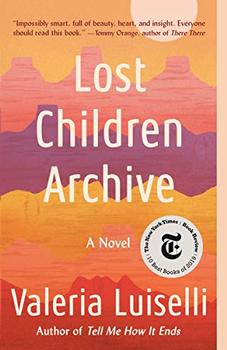 Lost Children Archive: A novel
Lost Children Archive: A novel
Paperback Feb 2020. 400 pages. Published by Vintage
Lost Children Archive touches on the subject of undocumented migrant children, but it's not a book directly about the immigration crisis. As Luiselli herself put it, it's "a novel that grapples with how to document and write about and think about political violence and about political crisis."
The book starts off with a portrait of growing tension between a woman, who is narrating the story, and her husband. Documentarians who initially collaborate on the same project, they each have a child from a previous marriage and are trying to build a new family together even as they begin to drift apart. At a certain point, the husband becomes interested in Apache history and decides to take his work in a new direction, informing his wife that he needs to relocate to the Southwest to do so. In an attempt to keep their relationship together, the narrator decides to shift the focus of her own work to the child refugee crisis at the border so that she can join him, at least temporarily. The plot of the novel centers around the resulting road trip from New York to Arizona, and confronts questions about documentation, history, what it means to be "lost" and other complex subjects.
More
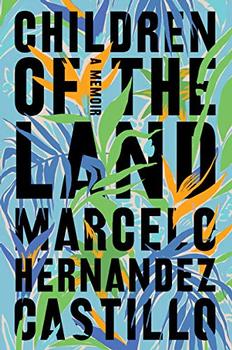 Children of the Land
Children of the Land Hardcover Jan 2020. 384 pages. Published by Harper
In his memoir Children of the Land, acclaimed poet Marcelo Hernandez Castillo details his experiences growing up as an undocumented immigrant in the U.S. The book begins with the author's recollection of being confronted by ICE agents who were looking for his father years after his deportation. Castillo vividly portrays the intense fear he felt of being deported himself at the time, but he does so while evoking the beauty of the surrounding world. "I saw agents in trees," he recounts, "I saw their heads popping out of the ground like tulips, I felt their hands touching every coin in my pocket." Children of the Land is written in "movements," which serve as windows to Castillo's memories and the stories of his parents, whose struggles he seeks to understand alongside his own.
The book is a beautifully rendered and wide-ranging exploration of family, heritage, immigration, belonging and the power of language and literature.
More
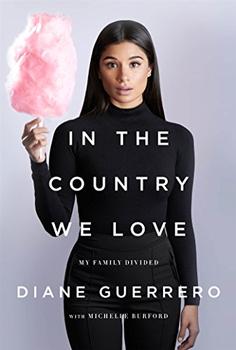 In the Country We Love: My Family Divided
by Diane Guerrero
In the Country We Love: My Family Divided
by Diane GuerreroMay 2016. 272 pages. Published by Henry Holt and Company
An actress known for her work on Orange is the New Black and Jane the Virgin, Diane Guerrero was born in the United States to undocumented Colombian immigrants. When she was 14, her parents were deported despite their best efforts to acquire legal status. In her memoir, Guerrero recounts the challenges she faced in the aftermath of this sudden event with remarkable grace and candor. Though she was taken in by family friends, she suffered from depression and anxiety as a result of her parents' absence and developed habits of substance abuse and self-harm to cope. Fortunately, she had a strong support system that helped her see a therapist and pursue her passion for acting. Her parents remain in Colombia to this day.
In addition to acting, Guerrero now serves as an Ambassador for Citizenship and Naturalization for the White House, a position that allows her to help other families facing similar issues. This memoir offers profound insight into the pain and trauma wrought by the deportation of individuals whose lives and families are firmly entrenched in the United States. Shortly after the book's release, she told the Washington Post what she most wanted people to take away from reading it: "We are real human beings, and our stories are of value. I want people to realize there is great potential in our communities and great benefits for our country to creating a path for citizenship. Long gone are the days when we should be simply 'grateful' and continue to let others humiliate us and silence our plight."
More
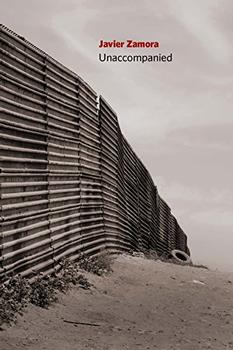 Unaccompanied
Unaccompanied
Sep 2017. 88 pages. Published by Copper Canyon Press
Javier Zamora was born in La Herradura, El Salvador in 1990. His parents fled to the United States during the Salvadoran Civil War when he was a child and he was raised by his grandparents until he too migrated as an unaccompanied minor in 1999. It was a 4,000 mile trip through Guatemala, Mexico (where his group was abandoned by the coyote guiding them), and the desert of the Southwestern U.S. Zamora's debut collection Unaccompanied features poems documenting that journey, and others that are concerned with the difficulty of assimilation, particularly in a country where he felt unwelcome.
They are poems about feeling as though home is two places at once, or perhaps nowhere at all.
In "Second Attempt Crossing," he recalls running from border police with a man who was a stranger to him before their journey began: "In the middle of that desert that didn't look like sand/ and sand only,/ in the middle of those acacias, whiptails, and coyotes, someone yelled/ '¡La Migra!' and everyone ran...you sprinted back toward me,/ I jumped on your shoulders,/ and we ran from the white trucks."
More